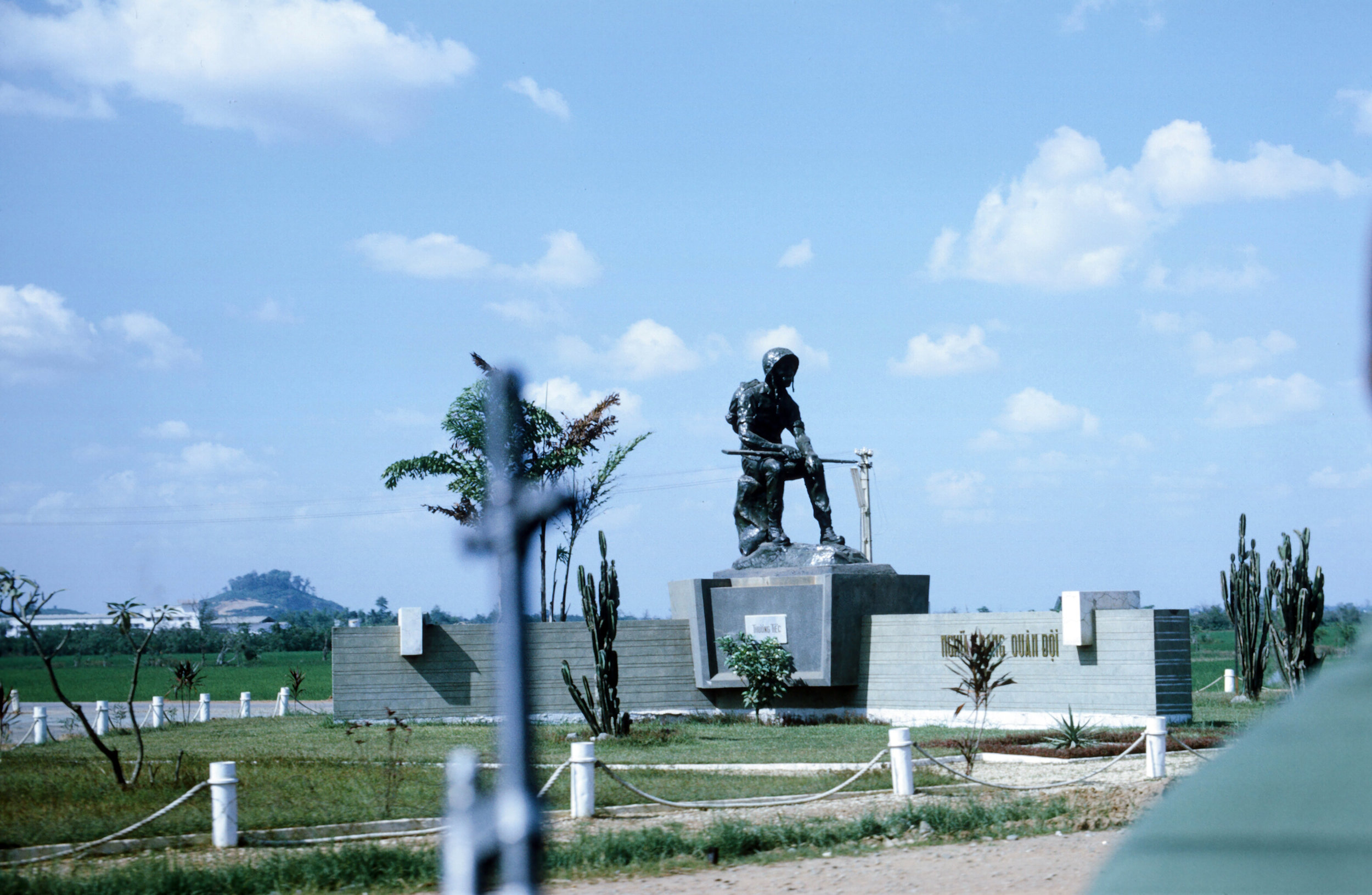Memory

"Be glad to trade you some ARVN rifles. Never been fired and only dropped once."
American historiography has grappled with how to portray the Vietnam War since 1975. While Americans grapple with the thought that they lost a war they were never destined to win, little thought is paid to the ideas, memories, and legacies of the Vietnamese soldiers and civilians who lived and fought the war. Even as the South Vietnamese fled their homeland to seek out a better life, many were relegated to menial jobs in their new homes, forgoing political activism and representation in order to achieve secure livings and stable homes for themselves and their children.
South Vietnamese Marines in Quang Tri Province, 1972.
One result of this has been the marginalization of Vietnamese voices in political, military, and social histories of the Vietnam War. In the works written by Americans, the South Vietnamese are afforded little agency, either portrayed as cowardly, ineffective, or depicted as bystanders to their own war. In the official histories of communist Vietnam, the South is nothing more than a puppet of the imperialist American war machine, traitors to Vietnamese history.
As a result, those in the Vietnamese diaspora community often ignore these two narratives, eschewing them as inaccurate, biased, or incomplete. Why would they read the histories that do not portray them as they were or even as they saw themselves?
Although Vietnamese-American literature is growing in prominence today, it remains a niche category, oft overlooked when contrasted with American and North Vietnamese histories. With every passing day, more and more memories are being lost. The stories of the generation who gave everything up in search for a better life, the generation who sacrificed so much for so little, are being forgotten. Although the Vietnamese-American community holds ceremonies and events for their honored dead, these happenings are often closed off or unknown by the public at-large, either unwilling or ignorant of how to participate.
Members of the South Vietnamese Marine Division Veterans Association.
On the 50th anniversary of the 1968 Tet Offensive, American media is remembering this watershed moment. In Vietnamese media both communist and capitalist, it is strangely muted. There is little fanfare for those who fought to "liberate" the south and failed, and nothing to celebrate for those who "won," but realized they lost the war in the process. What have we learned? What do we remember of the lessons of Tet and the rest of the war? What have we forgotten?
In writing the Vietnam War's history, we forget to consider the viewpoints of who we consider the "other," while ignoring the fact that perhaps the Americans were not the focal point of the war. As a Vietnamese-American, I grew up learning about the Americans in school and the Vietnamese at home. Torn between two different sides of the same coin, I found it difficult to reconcile the American idea that the war was immoral and wrong, and the South Vietnamese idea that the war was just and necessary. Only after some independent research on my own, as an adult, I think I've finally come to a happy medium. I can only hope that others do too. Although it is understandable that Americans will exclude others from their narratives, if we are to grasp all of the complexities of the Vietnam conflict, then we must strive to learn from those whose voices are muffled, silenced, or forgotten.






